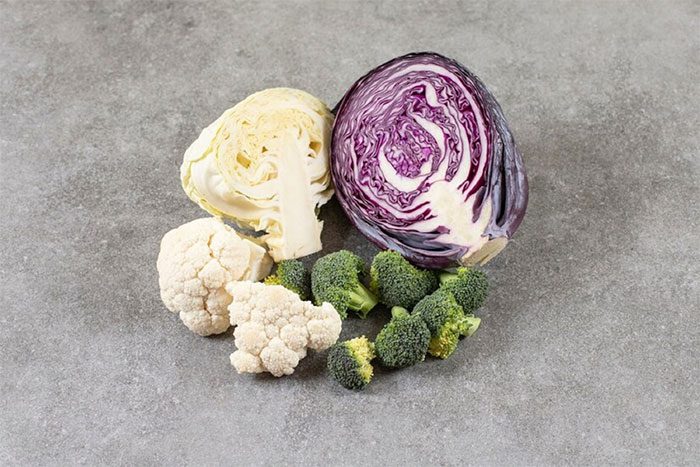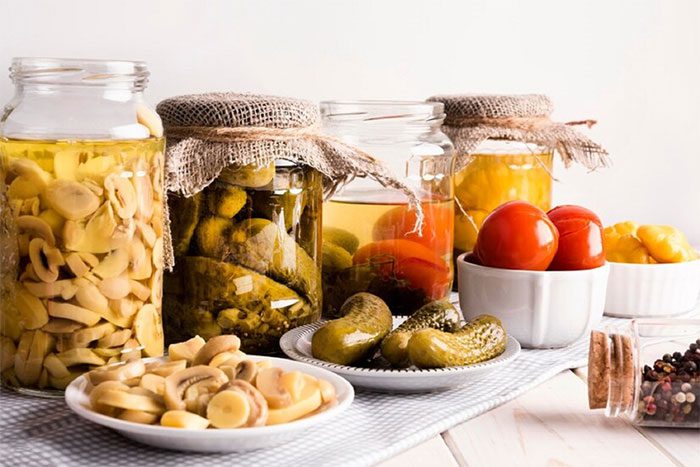Pickled mustard greens and various cruciferous vegetables contain compounds that inhibit the absorption of iodine by the thyroid gland. Sweet candies rich in sugar are also detrimental to individuals suffering from goiter.
Goiter is a condition characterized by the enlargement of the thyroid gland due to insufficient iodine. Symptoms include difficulty breathing, coughing or wheezing, trouble swallowing, dizziness, and prominent neck veins. To prevent the disease from becoming complicated, patients should limit the following foods.

Cruciferous vegetables such as broccoli, bok choy, and cabbage contain high levels of glucosinolate, which, when broken down, removes a significant amount of iodine and prevents its absorption by the thyroid gland. Goitrin, abundant in cruciferous vegetables, is a compound that adversely affects goiter.

Offal has a high content of lipoic acid, which can reduce the effectiveness of certain medications used to treat goiter. Consuming too much offal (such as chicken liver, pork intestine, heart, and kidney) can lead to thyroid disorders.

Sweets that are high in sugar and undergo multiple processing stages, often supplemented with various spices, can raise blood sugar levels, lead to weight gain, and significantly affect thyroid health.

Pickled mustard greens are heavily salted and contain additives that slow down metabolism, impacting thyroid hormone production, which is not beneficial for individuals with goiter.

Alcohol can inhibit thyroid function, reduce thyroid hormone production, and damage thyroid cells. Patients should opt for plain water and occasionally drink low-sugar fruit juices.

Strawberries are not ideal for individuals with goiter due to their high antioxidant content, which can exacerbate thyroid enlargement and make goiter management more challenging. Other antioxidant-rich fruits to limit include pears and peaches.


















































